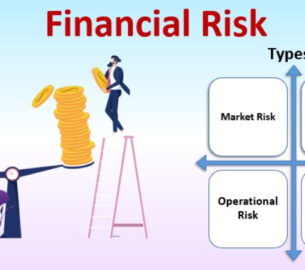Finance is an important and complex topic. Finance and accounting are often used together, with some even considering them the same thing. There is a major difference between them.
Here’s How To Define Finance:
Finance is the allocation of assets, liabilities, and funds over time, processes, and mediums to maximize profit from an activity. Capital budgeting is another name for finance. It is the management or growth of funds in the most profitable manner possible while managing risks and uncertainties.
These Are Some Of The Many Types Of Finance Available:
Personal Finance:
Personal finance is the management of an individual’s funds or finances. It also includes assistance in reaching their financial goals via savings and investments. Individual Personal Finance is unique to each person. The methods used depend on the individual’s earning capacity, needs, objectives, time frame, and other factors. Personal finance includes saving and managing expenditures. This covers assets like real estate, automobiles, life, and medical insurance, as well as other types of insurance.
Corporate Finance:
Corporate finance is responsible for financing company expenditures and the financing of the organization’s capital structures. It deals with both the source and channelization of funds. This includes the allocation of resources, the enhancement of the company’s value through financial improvements, and the improvement of its financial position.
Public Finance:
This finance deals with the financial needs of the states, cities, and provinces. In short, it is the money that the government requires. This includes long-term investments that involve public corporations. Public finance is determined by factors such as income distribution, resource allocation, economic stability, and other factors. The majority of funds are generated by taxes, banks, and borrowings from insurance companies.
Two Well-known Expressions Are Synonymous With Finance:
Microfinance:
In certain circles, microfinance may also be called microcredit. This type of finance is aimed at individuals who don’t have easy access to financial services. This category includes unemployed people and those from lower-income groups. A bank may offer ancillary services to customers, such as microinsurance and savings accounts.
Trade Finance:
Trade finance is a broad term that describes financial services and instruments that enable and support international trade. Trade finance is a great option for both exporters and importers. It allows them to transact seamlessly internationally while minimizing the risk associated with global trade. Trade finance can help reduce the risk of international trade by bridge the gap between importer and exporter requirements.
Instruments In Finance:
Individuals and companies need financial instruments to access financial services. A Financial Instrument is a contract that involves monetary transactions between two parties. You can use financial instruments for many purposes, including borrowing, investing, lending and lending.
There are two types of financial instruments: Cash & Derivative instruments.
Cash Instruments:
Market forces determine the value of Cash Instruments. Cash instruments are exchanged by the parties for instruments that can be transferred between them. This could be in the form of bank deposits, securities, or loans. There are many cash instruments available on the market, including certificates of deposit, Repos (repurchase agreement), bills, bills of exchange, and interbank loans.
Derivative Instruments:
A derivative instrument’s value is determined from the valuation of an entity. This could be an asset, an Index, or any other element with the potential to impact the derivative instruments’ value.












